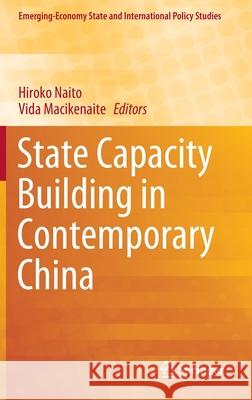State Capacity Building in Contemporary China » książka
topmenu
State Capacity Building in Contemporary China
ISBN-13: 9789811388972 / Angielski / Twarda / 2020 / 123 str.
State Capacity Building in Contemporary China
ISBN-13: 9789811388972 / Angielski / Twarda / 2020 / 123 str.
cena 201,24
(netto: 191,66 VAT: 5%)
Najniższa cena z 30 dni: 192,74
(netto: 191,66 VAT: 5%)
Najniższa cena z 30 dni: 192,74
Termin realizacji zamówienia:
ok. 16-18 dni roboczych.
ok. 16-18 dni roboczych.
Darmowa dostawa!
Kategorie BISAC:
Wydawca:
Springer
Seria wydawnicza:
Język:
Angielski
ISBN-13:
9789811388972
Rok wydania:
2020
Wydanie:
2020
Numer serii:
000848277
Ilość stron:
123
Waga:
0.36 kg
Wymiary:
23.39 x 15.6 x 0.97
Oprawa:
Twarda
Wolumenów:
01
Dodatkowe informacje:
Wydanie ilustrowane











